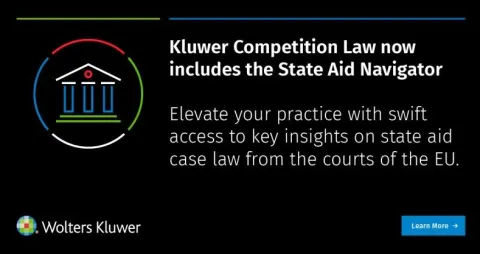A Refusal to Grant Aid Qualifies as the Date on Which Aid is Granted: C-653/23, TOODE SIA v. Valsts ieņēmumu dienests
September 8, 2025
Introduction
This article examines the recent judgment in C-653/23, TOODE SIA v. Valsts ieņēmumu dienests, which addresses the critical question of when State aid is deemed to have been "granted" under EU law, even if it is refused. The case highlights the interplay between national procedural rules, EU State aid law, and the fundamental right to an effective remedy under Article 47 of the EU Charter of Fundamental Rights (the "Charter") .
Facts and Preliminary Questions
On 10 November 2020, Latvia adopted an Order establishing rules for working capital support to companies affected by the COVID-19 crisis (the "Scheme"). The European Commission (EC) declared the Scheme compatible with the internal market through Decision SA.59592 (2020/N) of 16 December 2020 in accordance with Section 3.1 of the Temporary Framework for State aid to support the economy during the COVID-19 outbreak. The EC imposed a condition that aid under the Scheme must be granted no later than 30 June 2021, a deadline later extended to 30 June 2022 by EC Decision SA.100596 of 14 December 2021.
TOODE SIA ("TOODE") applied for aid under the Scheme. However, the Latvian Tax Administration rejected the application through two initial decisions dated 23 April and 7 June 2021, followed by two final decisions on 9 June and 23 July 2021. The rejections were based on TOODE's failure to meet the turnover reduction requirement. TOODE challenged these decisions in court, seeking an order compelling the tax authorities to grant the aid. The court of first instance dismissed TOODE's appeal.
On 29 June 2022, TOODE filed an appeal. The appellate judge faced a critical issue: whether TOODE remained eligible for the aid, given the condition that aid had to be granted by 30 June 2022. The court was thus required to determine the precise moment at which the aid in question is deemed to have been "granted" within the meaning of Article 107(1) TFEU. This determination is pivotal in classifying the aid as either "existing" or "new" State aid under Article 1 of Regulation 2015/1589.
The appellate judge also noted that, under Latvian law, national courts are only empowered to order the adoption of favourable administrative acts prospectively (ex nunc). Against this backdrop, the Administratīvā apgabaltiesa referred the following preliminary questions to the Court of Justice of the European Union (CJEU):
Is Article 107(1) TFEU to be interpreted as meaning that State aid is to be considered to have been “granted” at the point in time when the competent public authority unduly refused to rule that an individual had a right to receive State aid, if such is established by a judicial decision made after the expiry of the time limit prescribed for granting the aid?
Is Article 1(b)(ii) of Regulation 2015/1589 to be interpreted as meaning that aid which, in the absence of a decision by the competent public authority within the time limit prescribed for granting the aid, is granted to an individual after the expiry of the period laid down by the aid scheme for granting the aid, pursuant to a judicial decision finding that, within the period laid down by the aid scheme for the granting of the aid, the individual fulfilled all the conditions laid down by national law to receive the aid in question and that the refusal of the competent public authority to grant the aid was unlawful, constitutes existing aid?’
Judgment by the Court of Justice
The CJEU first addressed the implications of Latvian law, which provides that aid can only be deemed to have been granted on the date of adoption of a favourable administrative decision implementing a court ruling. The CJEU emphasised that it is for the national court to determine whether Latvian law allows retroactive (ex tunc) recognition of entitlement to aid on the date of the wrongful refusal or only prospective (ex nunc) recognition (paras 19–20).
However, the CJEU noted that if national law precludes retroactive recognition, Article 47(1) of the Charter requires such national rules to be disapplied to ensure effective legal protection (paras 21–29). The CJEU concluded that aid should be deemed to have been "granted" on the date of the wrongful refusal, even if a court decision recognises it only after the expiry of the aid scheme (para 30).
With respect to the second question, the CJEU held that aid is classified as "existing aid" under Article 1(b)(ii) of Regulation 2015/1589 if it is deemed to have been granted while the EC's approval was in force, even if the payment occurs later (paras 31–35). The CJEU reasoned that such classification does not distort competition, as the payment restores the competitive balance that would have existed had the aid been granted lawfully within the approved period (para 36).
Comments
The CJEU's judgment introduces a seemingly paradoxical concept: a refusal to grant aid is treated as the moment aid is deemed to have been granted. When a subsequent court decision replaces the original decision, the refusal is replaced by a positive decision (in the form of the court decision), and it is logical to keep that original date. However, if the court decision means that the public body has to take a new decision, and that decision, as apparently in Latvian law, operates ex nunc, such a decision could (as in this case) fall outside the period for which the EC approved an aid measure. The CJEU 'breaks into' national law to allow a beneficiary to still receive the aid to which it was entitled in accordance with a national scheme. From a State aid law perspective, this is understandable to the extent that the CJEU notes that granting the aid as yet does not have a negative effect on competition because the beneficiary could already have received the aid in the first place within the period for which the EC had already approved the aid and the balancing of positive and negative in that context had already taken place. State aid law (Article 107(1) and (3) TFEU, Article 108 and Regulation 2015/1589) therefore does not prevent the aid from still being granted and qualifying as existing aid. However, the CJEU goes a step further than finding that State aid law does not prevent this by holding that Article 107(1) TFEU, in conjunction with the first paragraph of Article 47 of the Charter, does preclude an interpretation of a national scheme which has the effect that individual aid covered by a national aid scheme approved by the EC cannot be deemed to have been granted on the date on which the competent national authority wrongly refused that aid.
Does this interfere with the principle that there is 'no right to State aid', as A-G Wahl noted in his Opinion in the Kotnik case (para 79) and as the EC noted in its decision in SA.40348 (2015/NN) – Spain - Support for electricity generation from renewable energy sources, cogeneration and waste (para 155)? In other words, the fact that aid may be granted, for example because the General Block Exemption Regulation authorises it or because the EC has approved an aid measure, does not mean that a Member State is also obliged to grant the aid. The CJEU’s reliance on Article 47(1) of the Charter seems to suggest that: the beneficiary should still be able to be granted aid. However, we think that the judgment should not be read that way. The implication of the judgment is that the national government cannot, by invoking the expiry of the period for which the EC approved the aid, refuse aid to which the beneficiary was entitled (or subsequently found to be entitled) in accordance with the national scheme, because the system of judicial review assumes ex nunc review. It may still refuse the aid on other grounds.
We do note that state aid law here forces a departure from what is normally the rule in national procedural law in Latvia in favour of (the interpretation of) state aid law. That goes further than the principle of equality and effectiveness (see for instance C-382/99, Netherlands/EC, 13 June 2002, para 90). After all, this case is not about the effectiveness of the application of a decision of the EC declaring aid compatible with the internal market: such a decision does not oblige but only allows the Member State to grant aid.

You may also like








